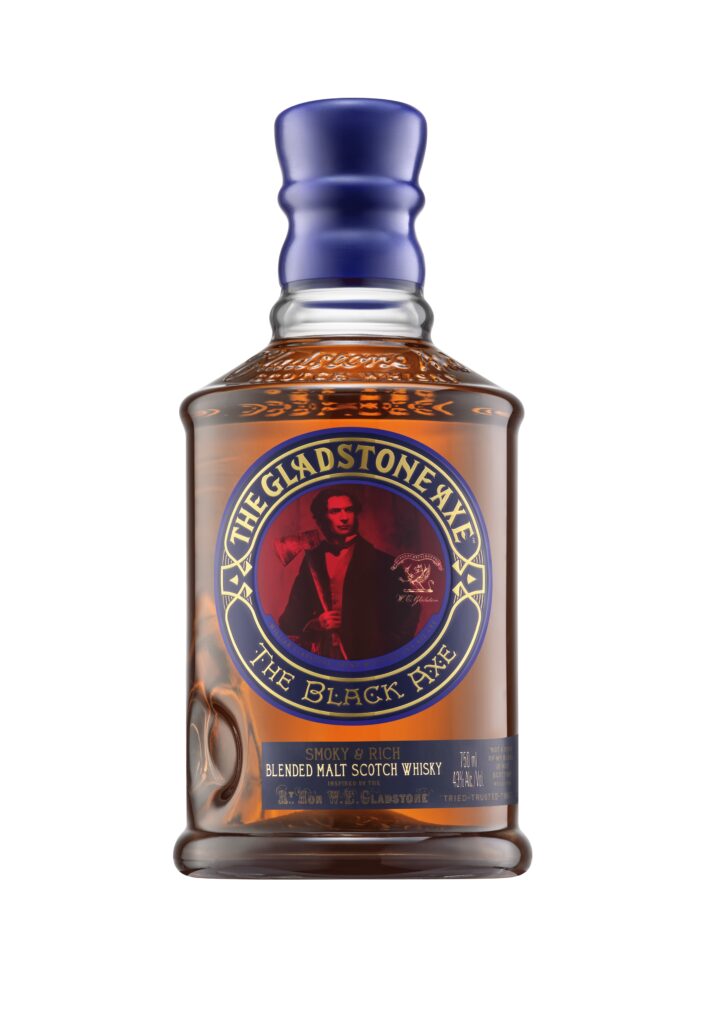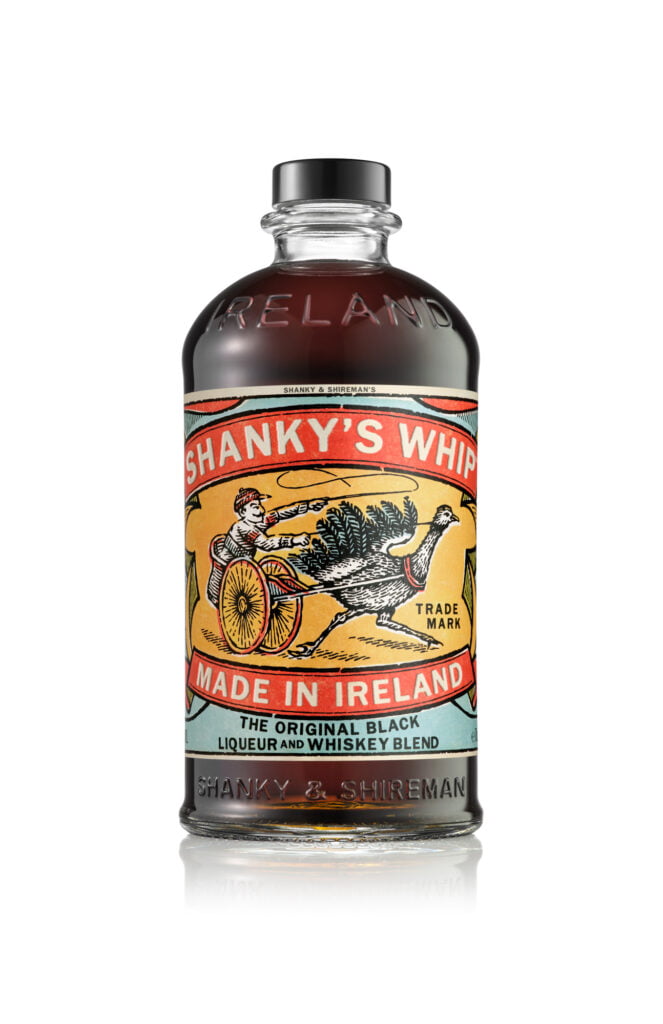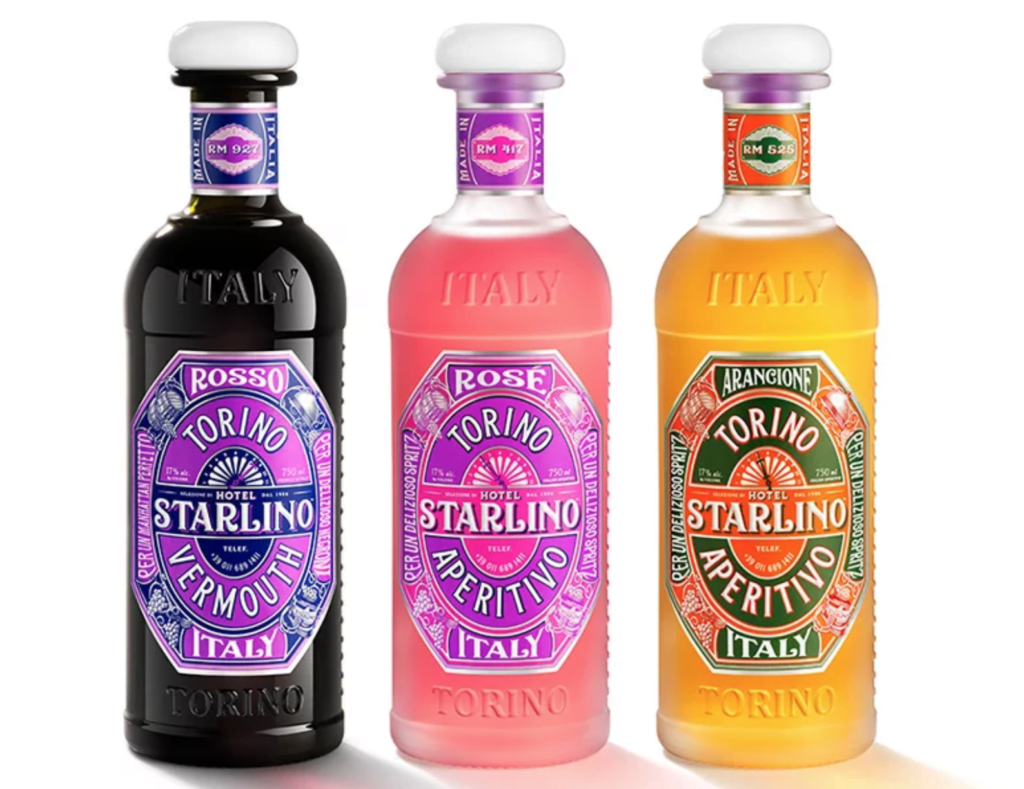
Elwyn Gladstone is the founder and CEO of Biggar and Leith, the wine and spirit maker behind brands including Malfy Gin, Gladstone Axe whisky and Hotel Starlino vermouth. The great-great-grandson of William Gladstone, Elwyn grew up in the former prime minister's castle in Wales, studied viticulture after university and worked for a number of major drinks brands before setting up his own company. We caught up with Elwyn to talk entrepreneurship, leaps of faith, and why we should all be drinking more vermouth.
How did you first get started in the drinks industry?
While I was at Edinburgh University, I worked for Oddbins in my spare time, becoming very interested in wine and spirits and where they’re from. I then won a scholarship to the University of California Davis to do a viticulture degree. From there I moved back to England and went to work for Bulmer cider company where I helped to introduce new ideas and buffed up its cider brands. I then went to William Grant & Sons and worked on the launch of Hendricks Gin, which was fascinating. It was great to work on a launch that actually works – very few people get to do that. After Hendricks, I went to work for José Cuervo, the famous tequila company in the US, and helped launch new products including Kraken Rum, which became really big. That was where I thought ‘It can’t be that difficult to do this by yourself. Why do it for other people when you can do it yourself?’
What prompted you to set up your own company?
I always thought that it would be fun to work on my own and not have to worry about other people. And I simply made the decision to leave – and that’s what you have to do! I think there are some entrepreneurs who never work for big companies, and they’re often very successful. But there are a smaller number of people who work for big companies and then go on to do it themselves. Because big companies tend not to have entrepreneurial people in them. To me, the definition of entrepreneurship is that you take a risk with your own money. And people that work in big companies tend to not like taking risks with their own money – they prefer the security. I took the plunge – I was very clear with the company that I was going to leave by a certain date. I thought, ‘What’s the worst that could happen?’ And it’s really not that bad. If you can leave a job, you can probably get another job. If it all goes wrong, you can go back. And of course once you’re doing it, you can never go back - it becomes unthinkable.
What happened next?
Sitting alone, in my basement, I gradually figured out how to do it! I started a brand called Malfy Gin – found the distillery, created the packaging and set up the distribution. It became a big success and we sold it to Pernod Ricard in 2019. Since then we’ve created a portfolio of different spirits as well as some food brands including a hot sauce called Casa Firelli and maraschino cocktail cherries.
Tell us about the inspiration behind Glastone Axe
I’ve got lots of politics in my family. My great-great grandfather was William Gladstone, the UK prime minister. On the other side, my grandfather was Elwyn Jones, the Lord Chancellor and Attorney General. So I’ve always been interested in politics and I grew up in Hawarden Castle in North Wales, Gladstone’s former home. We also used to spend summers in Scotland, where Gladstone had a house at Fasque.
As chancellor of the exchequer, Gladstone signed the Spirits Act of 1860, which allowed for blending of Scotch whisky for the first time. There had previously been a lot of rules and regulations to prevent bootlegging, but Gladstone as a liberal thinker wanted to encourage the growth of Scotch whisky and changed the laws to allow for greater production by more people. The empire was big then and traders took Scotch all over the world.
Gladstone also had this amazing collection of axes and he used to chop trees for exercise. Thousands of people would come and watch and collect the chips to wear in their lapels. Whisky is aged in wooden barrels so there’s a connection there too.


You’re also interested in Vermouth and how we drink it in the UK – can you tell us a bit more about that?
We were staying with a friend at Torino Distillati just outside Torino. Vermouth was invented in northern Italy and southern France, combining wine with wormwood and herbs and spices. Torino has an amazing culture of the cocktail, negronis and vermouth drinking – they have lots of vermouth bars. It’s a fascinating category and when you try it, it’s a great drinking experience– very sophisticated and delicious, and you don’t need to drink a lot of it. We were inspired to invent a vermouth aperitivo called Hotel Starlino– based on grand hotels from the past. We’re trying to invent a world around these turn-of-the-century hotels and their architecture and design. We have a classic red vermouth and a rosé aperitivo, as well as an elderflower variant. I think it could become quite popular in the UK– we love wine and we love gin and tonic here. There are so many gins now that the market is quite cluttered, so somewhere in between there’s space for wine-based aperitivo products. They’re delicious and complex, you can drink them with mixers and they’re beautifully packaged.

What key piece of advice would you give to an entrepreneur who was looking to set up their own business?
There are positive things about knowing a lot about something– if you work in an industry for a long time, like I did, it can be really useful. I was always trying to learn as much as I could from the different areas of the business (sales and production as well as marketing). When I left, I had a strong idea of what I had to do and how difficult it was. On the other hand, if you don’t know a lot about a category but you have a really interesting idea, you come to it very fresh and you don’t get turned around at every corner. So I think a bit of naiveté can really help because it allows for fresh thinking. It all comes down to the idea– which might sound obvious, but often entrepreneurs blame market conditions or distribution issues. I think that’s a bad mentality– you should come in with the thought that if your idea is amazing, it will work. It may not happen immediately, but it will happen eventually. Is your idea truly, truly different?
What do you look for in the people you work with?
We look for people who are entrepreneurial. We want people who can figure stuff out– none of the answers are there in front of them. We need people who don’t get disheartened by hitting brick walls, who take risks and who treat the business as if it were there own. We take care of people but we do expect people to think on their feet, take risks and act.
And finally, what is your tipple of choice?
I should probably say Scotch shouldn’t I? Scotch and soda.
Looks like you haven't made a choice yet.